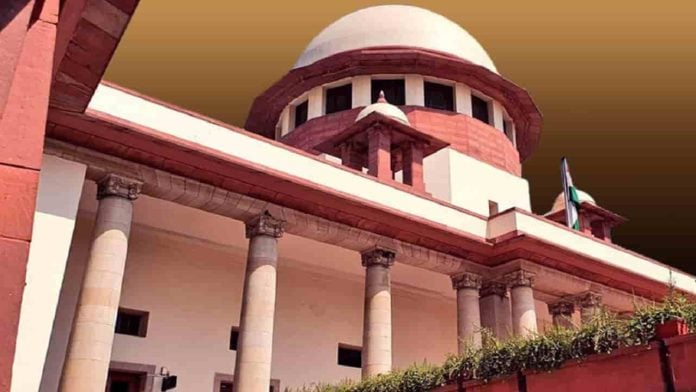Senior Advocate Vijay Hansaria, who was appointed as Amicus Curiae by the Supreme Court in the matter related to criminal cases against elected representatives, including MPs and MLAs, has suggested that the politicians who have been convicted in criminal cases, should be permanently disqualified from contesting elections.
Contending that the position occupied by lawmakers was ‘sacrosanct’, the Senior Advocate noted that once an MP or MLA was found to have committed an offence involving moral turpitude, he/she should be permanently disqualified from holding office.
Hansaria pointed out that statutory authorities under various legislations, including the Lokpal and Lokayuktas Act, 2013 and the Central Vigilance Commission Act, 2003, provide for permanent disqualification and/or removal from holding statutory office, if an officer has been convicted of an offence involving ‘moral turpitude’.
He said while the statutory authorities did not allow the convicted persons to occupy office, it was manifestly arbitrary that they can occupy supreme legislative bodies after expiry of a certain period.
As per the Amicus Curiae, there was no nexus that a person could make law to disqualify another person from holding a statutory office, but the person making the law would incur the disqualification only for a limited period.
Calling the six-year limitation period for barring the convicts from contesting elections as manifestly arbitrary and violative of Article 14 of the Constitution, he said the lawmakers were required to be much more sacrosanct and inviolable than the persons holding office under such law.
The Parliamentarians and the Legislators represent the sovereign will of the people and once found to have committed an offence involving moral turpitude, were liable to be permanently disqualified from holding the said office, he added.
The Senior Advocate further observed that limiting the period of disqualification was a flagrant violation of the equality clause enriched in Article 14 of the Constitution.
He said the offences under Section 8 of the Representation of the People Act, 1951 have been categorised depending upon the nature, seriousness and gravity.
However in all cases, the disqualification was only for a period of six years since the release of the convict, which meant that a person was eligible to contest election after six years of his release, even if convicted for heinous offences like rape or for dealing with drugs or being involved in terrorist activities or having indulged in corruption, he noted.
Hansaria argued that there was no nexus for such classification under Section 8 with the objective sought to be achieved and hence, it was violative of Article 14.
Regarding the expeditious disposal of criminal cases against elected representatives, Hansaria suggested a set of directions to be issued to subordinate courts for ensuring speedy disposal of such cases.
In his 19th report, the Senior Advocate mentioned several committee reports over the years that raised concerns about the ‘criminalisation’ of politics and referred to various judgments of the Apex Court, which opined that increasing criminalisation of politics has severely affected the country’s democratic functioning.
He was assisted by Advocate-on-Record Sneha Kalita in drafting of the report.
The Supreme Court had appointed Hansaria as Amicus Curiae in a petition filed by Advocate Ashwini Kumar Upadhyay in 2016, seeking debarment for life from contesting elections for politicians convicted in criminal cases.
The writ petition also challenged the constitutional validity of Section 8 of the Act, which confined the period of disqualification to contest elections for a period of six years since the release of the convict.
A Bench led by Chief Justice of India D.Y. Chandrachud will hear the matter on September 15.
(Case title: Ashwini Kumar Upadhyay vs Union of India)


